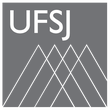Banca de QUALIFICAÇÃO: ARTHUR CARDOSO CAMPOS
Uma banca de QUALIFICAÇÃO de MESTRADO foi cadastrada pelo programa.STUDENT : ARTHUR CARDOSO CAMPOS
DATE: 30/08/2023
TIME: 14:00
LOCAL: https://meet.google.com/wzv-fsmv-fih
TITLE:
Fatty acids as fingerprintings for human impacts in freshwater ecosystems.
KEY WORDS:
Biochemical markers; Lipids; aquatic communities; land use;
PAGES: 40
BIG AREA: Ciências Exatas e da Terra
AREA: Geociências
SUMMARY:
Fatty acids (FA) are important biochemical molecules with vital structural and metabolic functions in all living organisms. In recent decades, the analysis of fatty acids in ecological studies has garnered significant attention due to its diverse applicability. These fatty acids serve as valuable tools in various contexts, such as taxonomic support for species identification or organism groups in aquatic ecosystems and investigations of trophic interactions in experiments involving aquatic consumer nutrition. More recently, fatty acids have been increasingly employed in environmental monitoring studies, serving as tools to detect and determine anthropogenic influences on aquatic ecosystems. The primary objective of this study is to test the hypothesis regarding the existence of general patterns of specific fatty acid responses (fingerprinting) to anthropogenic impacts in freshwater ecosystems on a global scale of analysis. Initially, a comprehensive analysis of the general trends in the application of fatty acid analysis in ecological studies within aquatic systems was conducted. This analysis involved thematic modeling of publications concerning fatty acids present in the Clarivate Analytics Web of Science collection. English-language publications were selected through a systematic search of titles and abstracts, employing the R package "litsearchr." After screening, a total of 119 articles were obtained and subjected to thematic modeling using ordination analyses (multiple dimensional scaling - MDS, latent Dirichlet allocation - LDA) with the "ldatuning" and "topicmodels" packages in R. The modeling aimed to identify topic similarities among the publications and assess the popularity of various topics (hot, neutral, and cold topics) based on their prevalence over the years. The analysis revealed the prevalence of topics such as "Seasonality and land-use effects," "Environmental/temperature stress in biofilms," "Highly Unsaturated Fatty Acids (HUFAs) in plankton," and "Fatty Acids (FAs) in fish tissues," classified as hot topics, with the first two experiencing an increasing trend in the literature since 2015. Topics classified as neutral included "Total lipids in invertebrates," "FAs in river organic matter," and "FAs in freshwater and marine fish." Meanwhile, "Food quality for Daphnia," "FA markers in sediments," "Trophic transfer in reservoirs/fish farms," and "FA markers in sludge/wastewater" were considered cold topics. Subsequently, the study will analyze the patterns and trends in the use of fatty acid molecules in studies falling under the two primary hot topics ("Seasonality, land-use, environmental, and temperature stress"). This analysis aims to identify potential fingerprintings of these categories of biochemical markers in environmental studies associated with these types of impacts on aquatic ecosystems.
BANKING MEMBERS:
Presidente - 2566929 - IOLA GONCALVES BOECHAT
Interno - 1671307 - BJORN GUCKER
Externo à Instituição - CLEBER CUNHA FIGUEREDO - UFMG



